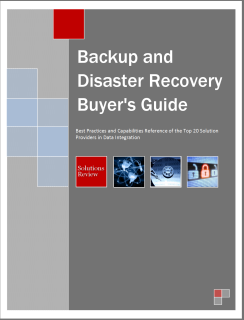Top Questions to Ask Vendors When Backup & DR Solution Shopping

Backup and disaster recovery are critical to the survival of your business; as in those without a solution will find themselves out of business when the inevitable disaster, be it technical failure, natural, or a malicious human, brings their systems down. It is therefore entirely logical that businesses should put in some time and energy towards finding a good backup and disaster recovery solution. Here are the top questions you should be asking a potential solution vendor before making a decision on which offering is right for your organization:
Performance?
The performance of any backup and disaster recovery solution goes way beyond speed of data transfer and data durability (how often the data that gets backed up gets corrupted). You should also evaluate ease of use, how protected physical backup sites are from various natural and man-made phenomena, and the types of data and devices the solution can handle. Those last three points should include both now and the rest of the time you plan on having the solution in place. There are a whole host of additional features that can fall into the category of performance, and a good way to measure them would be to find out how they improve the speed and accuracy of data transmission and disaster recovery.
How scalable is your solution?
As your business grows, so does the need for your enterprise back up and disaster recovery solution to keep up. How easy will it be for the potential solution to keep up with you as you scale? Details can include additional licenses, increased functionality, and any limits on the amount of data that the solution can handle.
What is the total cost of ownership?
Many companies that offer back up and disaster recovery solutions play pricing games. While one solution may headline a cheaper cost per gigabit of storage, make sure to read into the fine print to make sure they’re not charging you in other ways to make up the difference and then some. Total cost of ownership also means looking at the resources your company has to expend to run the solution, so take that into account as well. Finally, a “cheaper” solution that leaves you more vulnerable to an event may not be cheaper in the long run.
What kinds of support are offered as part of the package?
This question allows you to match up your previously identified support needs with what each potential solution offers. See who matches up best with your needs for the best price, and you will be one step closer to choosing a winning backup and disaster recovery solution.
How do you approach Data Security?
Data Security is no joke, as Sony employees can tell you as a result of the company’s data breach in late 2014. Make sure to ask how and where data is encrypted, and avoid companies that don’t encrypt data on their own servers, or give many of their own employees access to the encryption key if they do encrypt. The best providers will offer end-to-end encryption while adopting data security best practices to ensure that any breaches that do occur are dealt with swiftly and before much damage can be inflicted. Cloud solutions may be cheaper on average once you get into the terabyte range of data storage, but watch out for those hackers, who may try to make your cloud the next Apple iCloud.
For a comprehensive industry overview and complete profiles of all the top Backup and Disaster Recovery companies in the space today, download a free copy of our 2015 Buyers Guide.




